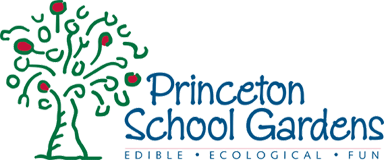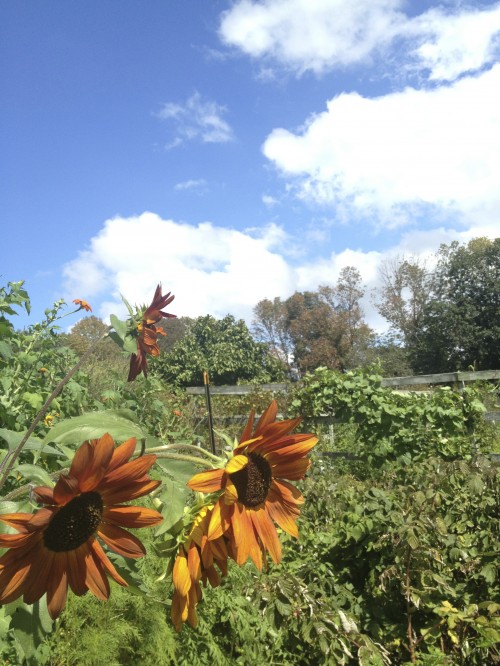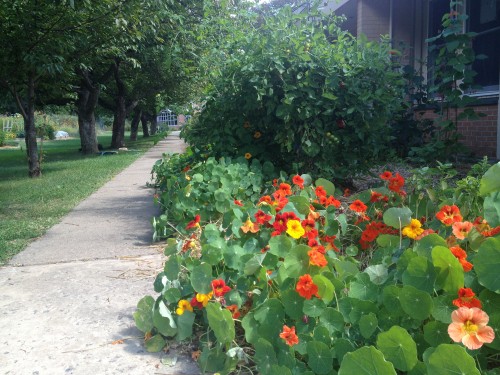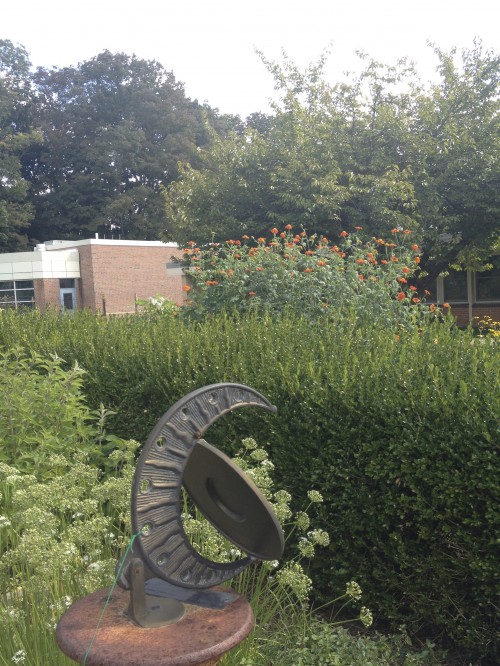By Assenka Oksiloff
Princeton Regional Schools
Research shows that children’s literacy skills improve when their reading and writing experiences are meaningful to them. At PRS, educators have taken this lesson to heart, designing innovative lessons and programs that make the written word come alive in imaginative – and delicious – ways.
In Jennifer Bazin’s kindergarten class at Riverside Elementary School, 17 students were recently treated to a culinary sampling while reading Maurice Sendak’s classic, “Chicken Soup with Rice,” in a lesson co-taught by Dorothy Mullen, the school’s garden artist-in-residence.
The lesson is part of a winter series on literature and food that Ms. Mullen has designed for the classes of Ms. Bazin and Linda Bruschi, who also teaches kindergarten at Riverside. Using an interactive, inter-disciplinary approach, Mullen packed the lesson full of goodies that included a reading of Sendak’s book, a review of the months of the year and the seasonal cycles, a song, and, of course, the pièce de resistance: chicken soup with rice.
Ms. Mullen’s position is funded by the Riverside PTO, who sought to develop a garden-based education program across all grades. Under her direction, in collaboration with the teachers, the children do garden lessons about 10 – 12 times per year.
During the winter months, they engage in lessons involving literature and food. This year, the kindergarteners have also tasted Stone Soup, Tops and Bottoms Soup, and Black Swallowtail Butterfly Host Plant Soup. “This is a way of bringing the garden into the classroom when we can’t go outside,” Mullen explained.
Before eating the soup, the students took a careful inventory of the ingredients in Sendak’s soup: chicken, rice, broth, carrots, celery and cabbage. They also pledge to honor Mullen’s simple rule: “You don’t have to eat something you don’t like, but no ‘yuck.’
In this case, there was no need for the rule. The soup received an overwhelming thumbs-up, with many requests for seconds. After the tasting, the group discussed plant growth and made plans for spring planting.
For Mullen, the connections between learning, gardening and eating add a nutritional and environmental component to the lesson. “We get our ingredients from our school, which gives a sense of sustainable living,” said Ms. Mullen, who is a founding member of the Princeton School Gardens Cooperative and has taught Master Gardeners of Mercer County how to become school gardeners. “Kids are actively involved when growing peas and carrots, and they are more likely to eat those vegetables when they grow them.”
Based on the data gathered about food preferences at the end of the lesson — almost all enjoyed the carrots, and two-thirds found the celery and cabbage delicious — she is correct.



